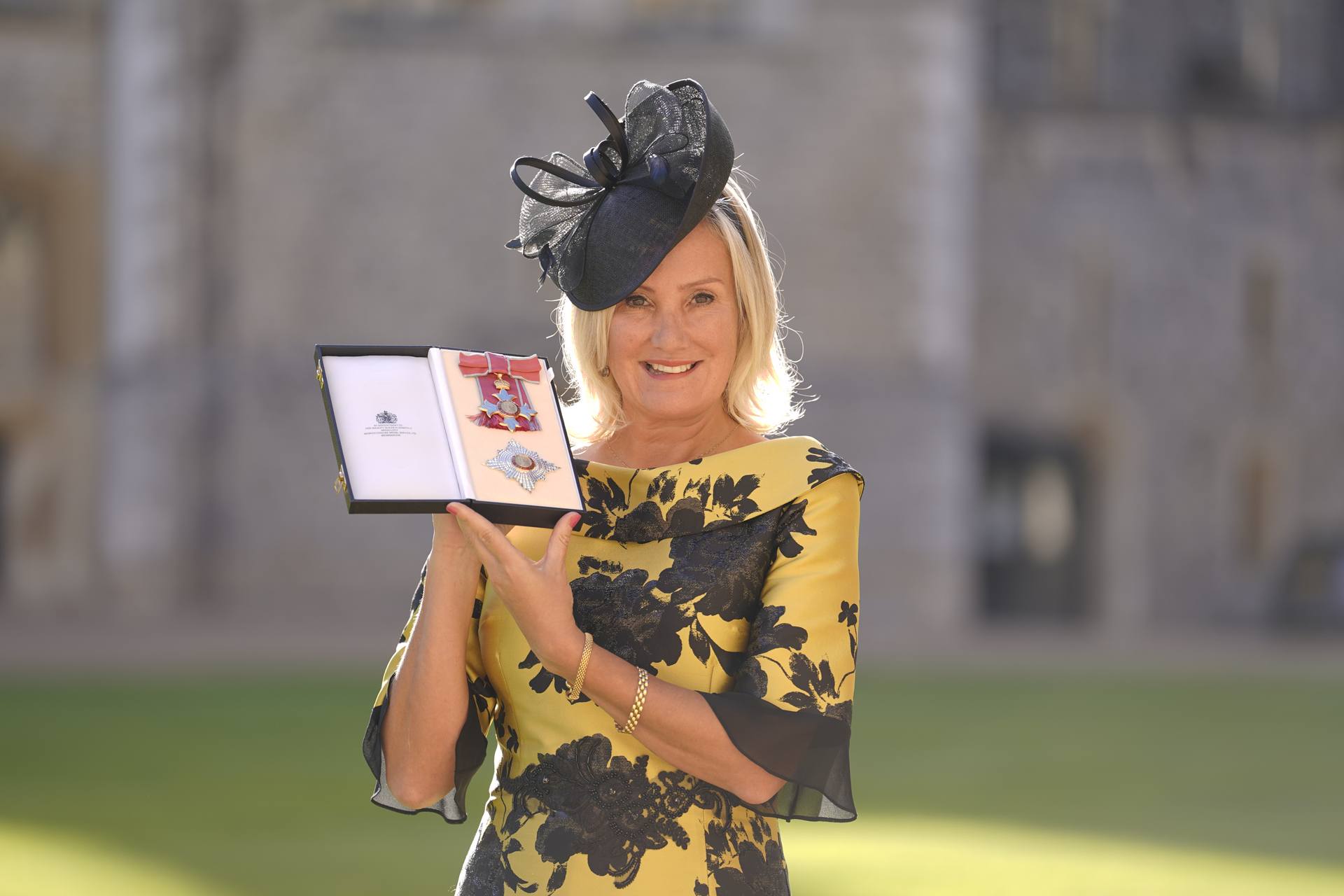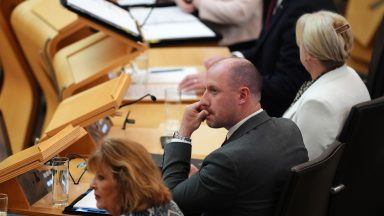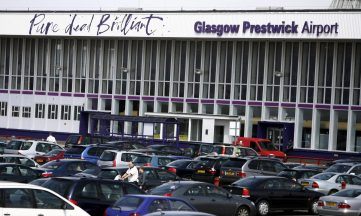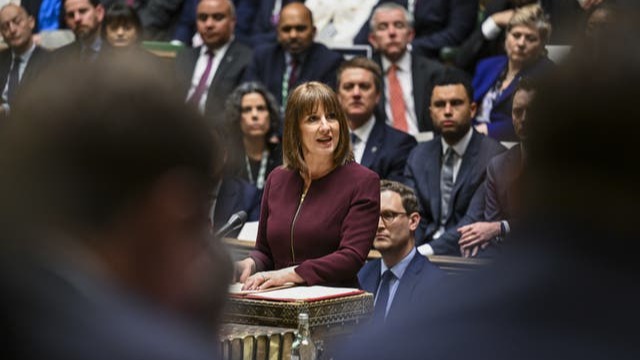The Government needs to ramp up support measures for the UK’s high-quality drama sector while safeguarding the creation of distinctly British content, a report has said.
Tax breaks and a streamer levy are among the recommendations outlined in the report from the Culture, Media and Sport (CMS) Committee.
It comes following the inquiry into British film and high-end television, which considered how domestic and inward investment production was being affected by the rise of streaming platforms.
 PA Media
PA Media“Culturally British domestic HETV (high-end television) is vital to the UK’s identity, national conversations and talent pipeline, but it is under threat”, the report warns.
Chairwoman of the committee, Dame Caroline Dinenage, said “there will be countless distinctly British stories that never make it to our screens” unless the Government intervenes to “rebalance the playing field” between streamers and public service broadcasters (PSBs).
The commissioning budgets of PSBs have been “squeezed by the real terms reduction of the BBC licence fee”, as well as a reduction in advertising revenue, according to the report.
The report calls for streamers, such as Netflix, Amazon, Apple TV+ and Disney+, to commit to paying 5% of their UK subscriber revenue into a cultural fund to help finance drama with a specific interest to British audiences.
It also says that the Government should introduce a statutory levy if the industry does not voluntarily establish the fund within a year.
Wolf Hall director Peter Kosminsky, who made the case for the levy, gave evidence in January and called the finance of public broadcasters, which include ITV, BBC, Channel 4, and Channel 5, “insufficient to make high-end TV drama in 2024/5 – in the inflated cost environment created here by the streamers”.
 PA Media
PA MediaHe also cited research by Producers Alliance for Cinema and Television (Pact), which found that there are 15 TV dramas that “have been green-lit by the UK PSBs but are currently unable to proceed” because of cost.
Director James Hawes said that the success of spy series Slow Horses proves that “quirky British” productions can become global hits when he gave evidence on British film and high-end television to the committee last year.
The report says the Government should consider ways British producers can retain a greater share of their intellectual property rights, claiming that the dynamic between independent producers and streamers is “not sustainable”, and that successful production companies “are being gutted by deals that deny them the ability to fully monetise their IP”.
Domestic high-end TV should also be supported through enhanced tax incentives in the way that independent film has been.
It comes after the Government introduced the Independent Film Tax Credit last year which allows productions costing up to £15 million to benefit from an increased tax relief of 53%.
The report says the Government should compare the UK’s film and high-end TV tax incentives twice a year with those of other countries and should bring forward any changes if it is found to be less competitive.
The report also addresses ways in which independent cinema and the industry workforce can be supported, and outlines how the Government needs to do more to help freelancers when they are out of work.
It also makes reference to the impact of generative artificial intelligence (AI), and the concerns of industry workers, with the report stating the Government should fund the British Film Institute’s development of an AI observatory and tech demonstrator hub.
Dame Caroline said: “Big box-office blockbusters made in Britain have showcased the UK’s world-class film and high-end television industry like never before.
“But the boom in inward investment of recent years now risks crowding out our many talented independent British producers.
“While streamers like Netflix and Amazon have proved a valuable addition for the industry and economy, unless the Government urgently intervenes to rebalance the playing field, for every ‘Adolescence’ adding to the national conversation, there will be countless distinctly British stories that never make it to our screens.
“From independent production through to cinemas, all parts of our film and high-end TV sector, and the talented people that make it such a success, are going through a turbulent time.
“To neglect just one part puts the entire ecosystem at risk, so it’s therefore vital that the Government goes further and faster across the board to support an industry that is so important to both our economy and our soft power overseas.
 PA Media
PA Media“Today’s report sets out a way forward for the Government to put the name of the UK film and television industry up in lights around the world as the very best place to do business and to work, by offering the right tax incentives, tackling skills shortages, improving worker rights and making sure the rise of AI is a positive force, not a disincentive to investment.”
Head of industry union Bectu, Philippa Childs, said: “We welcome this timely and incisive report from the Committee which identifies many of the urgent challenges currently facing the industry and its workforce.”
She added: “It’s essential that the industry does not become too skewed towards large streamers, which risks the homogenisation of content and the loss of much of the UK’s unique and distinctive output.”
A DCMS spokesperson said: “We acknowledge the challenges facing our brilliant film and TV industry and are working with it through our Industrial Strategy to consider what more needs to be done to unlock growth and develop the skills pipeline. We thank the Committee for its report which we will respond to in due course.”
A BBC spokesperson said: “We welcome the committee’s report and share their objective of ensuring the provision of British content for UK audiences.
“The BBC continues to invest more in British content than anyone else, but as the report highlights, we face significant financial challenges due to pressure on the licence fee and rising industry costs.
“It is therefore integral that the BBC and the wider UK creative industries have the support in place to drive growth in the creative economy and support homegrown content and storytelling.”
The Association for Commercial Broadcasters and On-Demand Services said: “A levy on streamers risks damaging UK growth and the global success story of the UK TV sector.
“While we welcome the committee’s support for a targeted tax relief enhancement for domestic drama, a levy would risk dampening streamers’ existing investment in domestic content and would inevitably increase costs for businesses – believing there would be no impact is wishful thinking.”
Follow STV News on WhatsApp
Scan the QR code on your mobile device for all the latest news from around the country


 PA Media
PA Media























